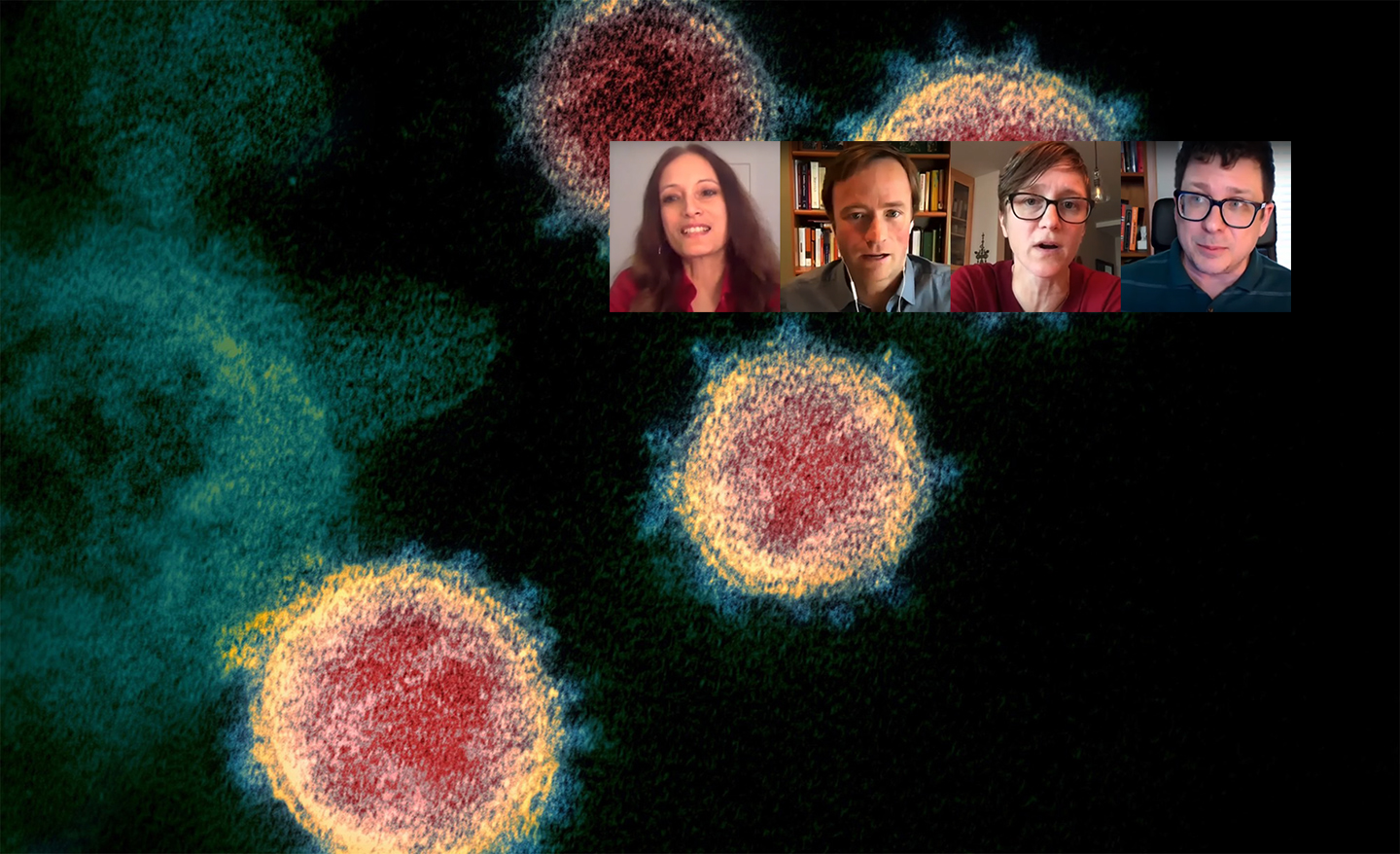The coronavirus pandemic isn’t the only viral problem currently afflicting the planet, according to experts from the University of Washington and Washington State University. We’re facing an “infodemic” as well.
The UW Center for an Informed Public and WSU’s Murrow College of Communication joined forces for a livestream summit on April 9 to address the spread of misinformation about the coronavirus and offer advice on how to build healthier information practices. More than 2,000 people watched at least a significant portion of the event, which was streamed on YouTube and Facebook Live.
Since the outbreak of the epidemic, individuals have had to make crucial decisions about things such as how seriously to take the virus, whether to stay at home, and whether to put their trust in unproven remedies. Their choices might depend on which media sources they choose to trust, and could have profound impacts on their long-term health.
Mike Caulfield, director of blended and networked learning at WSU Vancouver, put the stakes bluntly as the virtual summit began: “The difference between having the right information and the wrong information can be the difference between life and death, on an immense scale.”
Caulfield shared his “SIFT” technique for vetting news sources: Stop; Investigate the source; Find better coverage; and Trace claims, quotes and media to their canonical context. He compared these techniques to hand-washing – a way to slow the spread of dangerous information, even though it can’t eliminate it entirely.
Kate Starbird, a CIP researcher and associate professor in the UW Human Centered Design & Engineering department, explained that much of the misinformation is spreading due to uncertainty. In the absence of facts, we become naturally more vulnerable to spreading rumors as we try to make sense of a crisis, she said.
Starbird advised people to slow down and be aware of how information is affecting them emotionally, and to try to act constructively when they do encounter misinformation.
“Let yourself off the hook a little bit,” she said. “It’s good to point out when someone shares misinformation, but we don’t have to criticize them and criticize ourselves. We’re all vulnerable to this.”
Porismita Borah, an associate professor with WSU’s Murrow College, encouraged people to take the initiative to correct misinformation when they see it online and shared strategies for doing so, such as stating the facts plainly and correcting people without attacking them personally. She urged news consumers to turn to multiple sources to ensure they’re getting the best information possible.
“This is a perfect storm,” she said. “Misinformation thrives in situations like this. We do not have scientific certainty, and we are getting conflicting information from different places, and it’s really dangerous because it’s related to health.”
Jevin West, director of the CIP and an associate professor at the Information School, said the “infodemic” can be traced to the speed of modern technology and the public demand for instant answers.
“Information sometimes moves too fast,” he said. “For decades, we’ve been developing technology so information can move fast. I think that’s great, but in some cases, it can move too fast. Science is not comfortable in the fast lane – it’s much more comfortable in the multi-year, multi-decade lane, and it’s being asked to give answers in 10 days rather than 10 years.”
West noted that studies show public trust has declined in important institutions such as journalism, government and technology, but that trust in science remains high. One of the goals of the Center is to strengthen democratic discourse by bolstering trust in institutions such as journalism.
The second half of the summit was devoted to questions submitted by participants using ThoughtExchange, a platform that gives people a chance to vote questions to the top. Moderator Hanson Hosein, co-director of the UW Communication Leadership program, funneled questions from viewers to the panelists, covering topics such as how to navigate the politics of misinformation, how to educate people about it, and why the same misinformation seems to surface repeatedly.
One questioner expressed concern that trust in the media will continue to decline as misinformation spreads. Starbird responded that people seem to be turning to local media more frequently for reliable information during the crisis, so it presents them with an opportunity to build trust. But many are being hit hard at the same time by steep drops in advertising.
“We have to care about (local media) enough to invest in them in ways that help support them through this time and then looking forward as well to help them have the resources to do good journalism, because we need them more than ever,” she said.
Before the COVID-19 pandemic struck, the CIP had scheduled a series of town halls across the state of Washington. Instead, this summit could become the first in a virtual series. West urged attendees to send recommendations for guests at future virtual summits. You can submit those and find more information about the summit at cip.uw.edu/coronavirus.
